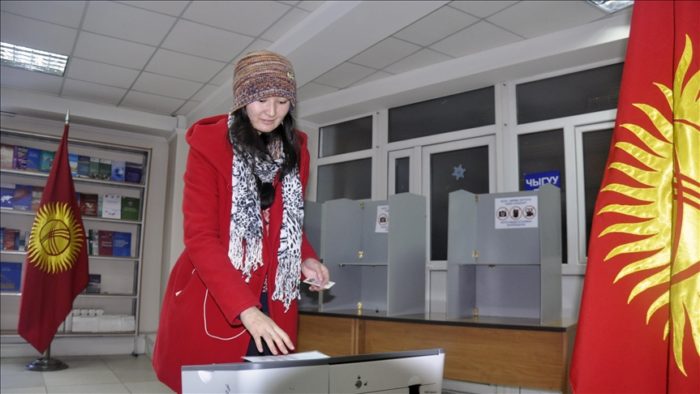Kyrgyzstan, a Central Asian state bordering Kazakhstan with its 6 million strong population, is on its way to political stabilization after the referendum on changes to the country’s Constitution was successfully held in it, with 79 percent of the votes cast in favor of the changes.

Photo credit: Anadolu Agency.
The changes give Sadyr Japarov, Kyrgyzstan’s recently elected President, all needed powers for conducting successful reforms in this country.
Kyrgyzstan went through a period of turmoil and uncertainty after the year 2005, when independent Kyrgyzstan’s first president, Askar Akayev, was deposed as a result of mass protests. One more violent change of government in 2010, accompanied by interethnic clashes and economic difficulties, did not add to the much needed stability. Another, shorter period of turmoil followed in 2020, ending in the coming to power of Sadyr Japarov.
According to the changes introduced into the Constitution by Sunday’s referendum, Japarov gets “supra-presidential” powers, which his predecessors did not have. The president, under the new law, will have the power to appoint and sack government ministers, the cabinet of ministers will be headed by the chairperson of the presidential administration. Kyrgyzstan’s president will be able to hold power for two consecutive five years long terms, instead of one six years long term, as it was the case according to the previous version of the Constitution.

Dmitry Babich
Will this new division of powers in Kyrgyzstan lead to stabilization of this country and help it finally concentrate on reforms instead of endless struggle for power? Kazakhstan certainly wants this to happen, since it wishes all the best to the fraternal people and obviously enjoys the new opportunities for high-level contacts with Kyrgyzstan’s new leadership.
Already in October 2020, right after Japarov’s de facto coming to power, Kazakhstan’s Foreign Minister Mukhtar Tileuberdi expressed warm support and hope for stabilization of Kyrgyzstan.
“Kazakhstan positively welcomes the trend towards stabilization in Kyrgyzstan. Viewing the developments in this neighboring country as its internal affairs, we urge the newly formed government to concentrate on reestablishment of stability, law and order, creation of necessary conditions for economic development”, Foreign Minister Tileuberdi said then in his statement on October 20, 2020.
Since then, there was a visit by President Japarov to Nur-Sultan, his summit meeting with the Kazakh President Kassym-Jomart Tokayev, agreements on cross-border cooperation and impressive joint economic projects.
The prospects for this cooperation are very promising, and this is recognized internationally.
“Kazakhstan is the most economically successful country in Central Asia, it has the largest economy, which it acquired by a combination of market reforms and the wise use of Soviet industrial legacy,” says Farit Mukhametshin, former Russia’s ambassador to Uzbekistan and the head of the working group Russia – Islamic World. “So, it would only be natural if Kazakhstan shared its skills and experience with Kyrgyzstan, especially in such spheres as attraction of foreign investment, pension reform and stable financial policy.”
The new legislation for Kyrgyzstan is based on a solid foundation of public opinion’s support for it. The first referendum on the need for transition to a presidential republic was held in Kyrgyzstan on January 10, 2021, simultaneously with the presidential election. So, one may say that people voted for the changes twice and President Japarov does have a democratic mandate for reform.
The author is Dmitry Babich, a Moscow-based journalist with 30 years of experience of covering global politics, a frequent guest on BBC, Al Jazeera and RT.

